To reflect on all the books you have read this year, answer the following questions on a sheet of loose leaf. #2-6 should be written in at least a paragraph and make sure to indicate the question in your answer.
1. From easiest to hardest, list all 20 books you read this year by title and author. If you read more than 20 books, you don't have to list all of them. Just list 20.
2. Explain why you chose this order for your easiest to hardest list. What made the hard books hard and the easy books easy?
3. Reflect on your reading rate this year. Did it improve or go down? How do you explain the progression or lack of progression in your reading rate?
4. What were your goals as a reader this year and how did you achieve them?
5. How have your reading habits and preferences changed this year?
6. What was your favorite read aloud this year?
Friday, May 24, 2013
Sunday, May 19, 2013
Final reflective essay
Your reflective essay should include the following:
DUE: Friday May 24th
1. How you have grown as a writer this year
2. Where you feel
you could improve
3. How the 6+1
traits of writing helped you to become a better writer
o Are the 2 traits
you chose at the beginning of the year still the most challenging for you?
4. The one piece
of writing that helped you to see your progression as a writer (your “Aha!”
moment if you will)
5.Tell me your favorite and
least favorite writing pieces and why.
6.How did your writer’s
notebook help shape your writing this year?
7.BONUS:
What mentor text
helped you the most?
Also:
•Must
be typed, double spaced and use an easy-to-read font
•Need
to have a rough and final draft
DUE: Friday May 24th
Wednesday, May 15, 2013
When You Reach Me reflection questions
Answer the following questions in complete sentences.
1. When You Reach Me is one of those books that confuses the reader up until the very end. So what I want to know is (a) what are you certain you understand and (b) what are you still confused about?
2. Who was your favorite and least favorite character and why?
3. Explain the significance of the book A Wrinkle in Time to the story.
4. What genre would you categorize this book? Why?
5. What if Marcus had never hit Sal?
6. As we were reading, who did you predict was sending Miranda the notes? Why did you think that? (if you'd already read this book, think back to the first time you read the book to answer this question)
1. When You Reach Me is one of those books that confuses the reader up until the very end. So what I want to know is (a) what are you certain you understand and (b) what are you still confused about?
2. Who was your favorite and least favorite character and why?
3. Explain the significance of the book A Wrinkle in Time to the story.
4. What genre would you categorize this book? Why?
5. What if Marcus had never hit Sal?
6. As we were reading, who did you predict was sending Miranda the notes? Why did you think that? (if you'd already read this book, think back to the first time you read the book to answer this question)
Monday, May 6, 2013
Poetry Reflective Essay
Write a one-page
(front and back), handwritten essay on the following prompt:
Now
that we have finished this unit on poetry, I want to ask you one last time,
what is poetry? Does it even matter what
poetry is? What have you learned about
yourself through this process? What did
you like? What didn’t you like?
Use
your journal and your previously created concept maps to help you construct
your essay.
Thoughts to consider:
- How your definition and perception of poetry changed
- How you are similar or different from the character of Jack in Love That Dog
- How the blackout and headline poems changed your ideas of what poetry is
- Where you found poetry hiding
- How memorizing and reciting a poem in front of an audience impacted you as a student and as a reader of poetry
Sunday, May 5, 2013
MLA Tutorial: Basic Paper Formatting
8th graders, be sure to remember you need to format your research paper using MLA guidelines. Here are two videos to help you with how to go about doing that.
Friday, April 26, 2013
Writing Outlines
Here is a great resource for creating an outline for your research paper:
Purdue Owl Online Writing Lab
Purdue Owl Online Writing Lab
Thursday, April 25, 2013
8th grade English: historical fiction novel questions
Please answer the following questions on loose leaf in
COMPLETE SENTENCES! You may use your book to help you answer your questions.
- Who is the protagonist of the story? How do you know? Is this person real or fictional?
- What is the main conflict of the story? Is it internal or external?
- List two other major characters and their roles in the story.
- Which characters/situations in the story are fictional and which ones are based on true/historical events?
- Who was your favorite and least favorite character? Why was he/she your favorite/least favorite?
- What do you think was the most important scene in the book? Why do you feel that way?
- What did you think of the ending? Explain your reaction in a paragraph.
- What questions do you still have about the story/characters that the author left unanswered? (Please refrain from asking, “What if I don’t have any questions?”)
Wednesday, April 24, 2013
"Introduction to Poetry" questions
1. Who is the “them” Collins is referring to in the poem?
What leads you to believe that?
2. How would you describe the speaker's tone in the poem? Is
this poem meant to be funny or serious? How do you know that?
3. How are we meant to feel about poetry by the end?
4. Choose one of the following images and explain what you
think Collins meant by it:
“drop a
mouse into a poem
And watch
him probe his way out,”
“walk inside
a poem’s room
And feel the
walls for a light switch”
“I want them
to waterski
Across the
surface of a poem”
Tuesday, April 23, 2013
Pre-Performance Poetry Reflection
Before you perform your poem, please complete the following in the
comments section. Each part of the assignment is worth 10 points:
1. Type your poem here on the blog - be sure to write the title and author.
2. In a paragraph, explain what you think this poem means. Why do you think the author wrote it? What sort of mood or feeling does it give?
3. In another paragraph, explain why you chose this poem. What is it about the poem that speaks to you? (And just so you know, “It was the shortest poem I could find” is not an acceptable response!)
Here is my example:
1. Type your poem here on the blog - be sure to write the title and author.
2. In a paragraph, explain what you think this poem means. Why do you think the author wrote it? What sort of mood or feeling does it give?
3. In another paragraph, explain why you chose this poem. What is it about the poem that speaks to you? (And just so you know, “It was the shortest poem I could find” is not an acceptable response!)
Here is my example:
Fish Story
by Richard Amour
Count this among my heartfelt
wishes:
To hear a fish tale told by
fishes
And stand among the fish who
doubt
The honor of a fellow trout,
And watch the bulging of their
eyes
To hear of imitation flies
And worms with rather droopy
looks
Stuck through with hateful,
horrid hooks,
And fishermen they fled all day
from
(As big as this) and got away from.
This is a poem about a fish story, but from the fish’s
point-of-view instead of the human.
Everyone seems to have a fisherman in their family who has a tale to
tell of “the one that got away.” The
family members all ooh and aah when said fisherman talks about how, “I once
caught a fish this big,” and in a flourish, shows with exaggerated enthusiasm,
the size of the fish that he caught, though conveniently no one has seen. Richard Armour takes that fish story cliché
and turns it on its heels by giving it a different perspective – from that of
the fish. Of course, the fish doesn’t
tell of the size of the human they caught, but instead the size of the one they
got away from (rather than the one that got away). So of course, the mood of this poem is very lighthearted and
humorous, which is always what fish stories are, whether told by human or fish!
What speaks to me about this poem is that I have many men in
my family who are fishermen (though not very good ones!) so it’s always funny
to hear them talk about fishing and their good-natured ribbing of each other’s
lack of talent when it comes to catching anything of substance. My dad, grandpa (who is now passed), uncle,
and brother all love to fish so fish stories abound in my family! When all of them get together and talk about
fishing, everyone always has to laugh at the bantering back and forth between
them. When the men talk about fishing,
you can always guarantee that laughter will soon accompany the
conversation. So when I read this poem,
I always think of the men of my family and smile because I imagine the fish who
is telling this story is the one that got away from either my dad, grandpa,
uncle, or brother.
Tuesday, April 9, 2013
What is Poetry?
In class we discussed the ambiguity of poetry in
terms of how it’s defined. As we explore this genre, we will continue
to return to the question, “What is poetry?”
To show you how varied and diverse poetry is, I thought I’d share with you a mélange of different poetry definitions from poets themselves.
Your task is to choose one definition that you are drawn to and complete the following procedure:
1) Write the entire definition and the author – 5 points
2) Explain why you chose this definition (e.g. what do you like about it? What caught your eye? Did you choose this one because you disagree with it? Why?) – 5 points
3) Write a paragraph explaining what you think this definition means. – 10 points
4) To make sure this doesn’t just become an assignment that you all come on here to complete without actually reading others’ thoughts, you will also be required to refer to a previous classmate’s post. If you’re the first commenter then you will need to come back later and add to the discussion. – 5 points
Here is the list of definitions to choose from:
“Poetry is a deal of joy and pain and wonder, with a dash of the dictionary. “ – Kahlil Gibran
“Poetry is a mirror which makes beautiful that which is distorted.” – Percy Shelley
“Poetry is thoughts that breathe and words that burn.” – Thomas Gray
“Poetry is when an emotion has found its thought and the thought has found words.” – Robert Frost
“Poetry is a literature of brushstrokes.” – Nikki Grimes
“Poetry is ordinary language raised to the nth power. Poetry is boned with ideas, nerved and blooded with emotions, all held together by the delicate, tough skin of words.” – Paul Engle
“Poetry is the rhythmical creation of beauty in words.” – Edgar Allen Poe
“Poetry is plucking at the heartstrings, and making music with them.” – Dennis Gabor
“Poetry is the art of saying everything and reducing it to nothing.” – Barbara Hyett
To show you how varied and diverse poetry is, I thought I’d share with you a mélange of different poetry definitions from poets themselves.
Your task is to choose one definition that you are drawn to and complete the following procedure:
1) Write the entire definition and the author – 5 points
2) Explain why you chose this definition (e.g. what do you like about it? What caught your eye? Did you choose this one because you disagree with it? Why?) – 5 points
3) Write a paragraph explaining what you think this definition means. – 10 points
4) To make sure this doesn’t just become an assignment that you all come on here to complete without actually reading others’ thoughts, you will also be required to refer to a previous classmate’s post. If you’re the first commenter then you will need to come back later and add to the discussion. – 5 points
Here is the list of definitions to choose from:
“Poetry is a deal of joy and pain and wonder, with a dash of the dictionary. “ – Kahlil Gibran
“Poetry is a mirror which makes beautiful that which is distorted.” – Percy Shelley
“Poetry is thoughts that breathe and words that burn.” – Thomas Gray
“Poetry is when an emotion has found its thought and the thought has found words.” – Robert Frost
“Poetry is a literature of brushstrokes.” – Nikki Grimes
“Poetry is ordinary language raised to the nth power. Poetry is boned with ideas, nerved and blooded with emotions, all held together by the delicate, tough skin of words.” – Paul Engle
“Poetry is the rhythmical creation of beauty in words.” – Edgar Allen Poe
“Poetry is plucking at the heartstrings, and making music with them.” – Dennis Gabor
“Poetry is the art of saying everything and reducing it to nothing.” – Barbara Hyett
Friday, April 5, 2013
8th grade research paper on a historical era
Your research paper starts with a book. You will choose a historical fiction, preferably from the following list, and then research the historical period in which your book takes place.
No more than TWO people may read the same book.
Anderson, Laurie Halse: Chains, Fever 1793
Barrow, Randi: Saving Zasha
Barth-grozinger, Inge: Something Remains
Bartoletti, Susan: The Boy Who Dared
Chibbaro, Julie: Deadly
Choldenko, Gennifer: Al Capone Does My Shirts
Collier, James Lincoln and Christopher: My Brother Sam is Dead
Compestine, Ying Chang: Revolution is Not a Dinner Party Curtis, Christopher Paul: The Watsons Go to Birmingham - 1963
Donnelly, Jennifer: Revolution
Dowell, Frances O'Roark: Shooting the Moon
Draper, Sharon M.: Copper Sun
Kadohata, Cynthia: Weedflower
Kidd, Sue Monk: The Secret Life of Bees
Klages, Ellen: The Green Glass Sea
Lasky, Kathryn: Ashes Levine, Kristin: The Lions of Little Rock
McCarthy, Susan Carol: Lay That Trumpet in Our Hands
McCormick, Patricia: Never Fall Down
Myers, Walter Dean: Riot
Sepetys, Ruta: Between Shades of Gray
Shaffer, Mary Ann: The Guernsey Literary and Potato Peel Society
Sharenow, Robert: The Berlin Boxing Club
Smith, Roland: Elephant Run
Speare, Elizabeth George: The Witch of Blackbird Pond
Spinelli, Jerry: Milkweed
Whelan, Gloria: Angel on the Square, Small Acts of Amazing Courage
Wiles, Deborah: Countdown
Yolen, Jane: The Devil’s Arithmetic
Zindel, Paul: The Gadget Zusak, Markus: The Book Thief
Thursday, April 4, 2013
Who should Mr. Schu take on his 2013 summer roadtrip?
Remember at the beginning of the year when I told you about my friend Mr. Schu's road trip where he got to meet Ivan the Gorilla? Well, he wants you to vote for his 2013 road trip mascot.
I voted for Babymouse. Who do you think should accompany Mr. Schu this year?
Vote here.
I voted for Babymouse. Who do you think should accompany Mr. Schu this year?
Vote here.
Monday, March 25, 2013
Wonder reflections
Please answer the following questions in COMPLETE SENTENCES. Most of your responses should be multiple sentences in length.
1. What is the theme or message of Wonder? What leads you to believe that?
2. Why do you think RJ Palacio chose to write the book in multiple points-of-view instead of just Auggie’s?
3. In a paragraph of 5 or more sentences, choose a book that either we have read together as a class or one you have read on your own and make some connections to Wonder. Suggestions: One by Kathyrn Otoshi, Each Kindness by Jacqueline Woodson
4. The last line of the book is August’s precept: “Everyone in the world should get a standing ovation at least once in their life because we all overcometh the world.” Explain why this is the perfect precept for Auggie.
5. Many people who criticize Wonder say that the ending is too perfect and that real life stories just don’t end that happily. What do you think of how the story ended?
6. Explain how August is a three-dimensional character.
7. Choose three of the following characters to write your final impressions about: Jack Will, Julian, Summer, Charlotte, Via, Miranda.
8. How do you think August would be treated if he came to St. Paul for the first time as a sixth grader this year? Explain your answer.
9. How can you live the words Mr. Tushman quotes from J.M. Barrie in his graduation speech:
"Shall we make a new rule of life... always try to be a little kinder than is necessary?"
10. None of us have the circumstance of having a major physical abnormality. However, we feel as if we can relate to many of the characters in the book, including August. In what ways do you personally relate to Wonder? Poor answer choices: “I don’t.” “I’m a student.” “I have friends.” Go deeper into this. You are a student and you have friends, but in what specific ways are those situations like the ones in the book? (Thank you Brian Wyzlic for this question!)
1. What is the theme or message of Wonder? What leads you to believe that?
2. Why do you think RJ Palacio chose to write the book in multiple points-of-view instead of just Auggie’s?
3. In a paragraph of 5 or more sentences, choose a book that either we have read together as a class or one you have read on your own and make some connections to Wonder. Suggestions: One by Kathyrn Otoshi, Each Kindness by Jacqueline Woodson
4. The last line of the book is August’s precept: “Everyone in the world should get a standing ovation at least once in their life because we all overcometh the world.” Explain why this is the perfect precept for Auggie.
5. Many people who criticize Wonder say that the ending is too perfect and that real life stories just don’t end that happily. What do you think of how the story ended?
6. Explain how August is a three-dimensional character.
7. Choose three of the following characters to write your final impressions about: Jack Will, Julian, Summer, Charlotte, Via, Miranda.
8. How do you think August would be treated if he came to St. Paul for the first time as a sixth grader this year? Explain your answer.
9. How can you live the words Mr. Tushman quotes from J.M. Barrie in his graduation speech:
"Shall we make a new rule of life... always try to be a little kinder than is necessary?"
10. None of us have the circumstance of having a major physical abnormality. However, we feel as if we can relate to many of the characters in the book, including August. In what ways do you personally relate to Wonder? Poor answer choices: “I don’t.” “I’m a student.” “I have friends.” Go deeper into this. You are a student and you have friends, but in what specific ways are those situations like the ones in the book? (Thank you Brian Wyzlic for this question!)
Friday, March 22, 2013
Great video + journal topic
Great video of my friend Sarah's classroom
This video is from the STEM school in the article we read last week.
So what are your thoughts about what they're doing in class? How do you feel about using newspapers as textbooks?
This video is from the STEM school in the article we read last week.
So what are your thoughts about what they're doing in class? How do you feel about using newspapers as textbooks?
Wednesday, March 20, 2013
March Book Madness: The Championship


The Hunger Pains: A Parody by The Harvard Lampoon
vs.
Wonder by RJ Palacio
Vote here and vote wisely
Monday, March 18, 2013
March Book Madness: The Final Four
Here is the breakdown of the brackets for the Final Four:


The Hunger Pains: A Parody by The Harvard Lampoon
vs.
The Hero's Guide to Saving Your Kingdom by Christopher Healy


Bomb: The Race to Build - and Steal the World's Most Dangerous Weapon by Steve Sheinkin
vs.
Wonder by RJ Palacio
Vote here and vote wisely


The Hunger Pains: A Parody by The Harvard Lampoon
vs.
The Hero's Guide to Saving Your Kingdom by Christopher Healy


Bomb: The Race to Build - and Steal the World's Most Dangerous Weapon by Steve Sheinkin
vs.
Wonder by RJ Palacio
Vote here and vote wisely
Book review project
Your book review must include:
Here are some examples of book reviews I've written on the blog:
The Running Dream
The Hero's Guide to Saving Your Kingdom
Turtle in Paradise
Here are some other book reviews you might want to check out:
Requiem by Lauren Oliver, written by Brian Wyzlic
The Runaway King by Jennifer A. Nielsen, from Stacked
Eleanor and Park by Rainbow Rowell, written by John Green
- The title of the book and the author
- A picture of the cover
- A picture of the author
- A few sentences about the author
- A summary of the book without giving away the ending
- Your opinion of the book with specific examples from the story.
Here are some examples of book reviews I've written on the blog:
The Running Dream
The Hero's Guide to Saving Your Kingdom
Turtle in Paradise
Here are some other book reviews you might want to check out:
Requiem by Lauren Oliver, written by Brian Wyzlic
The Runaway King by Jennifer A. Nielsen, from Stacked
Eleanor and Park by Rainbow Rowell, written by John Green
Thursday, March 14, 2013
March Book Madness: The Elite 8
Here is the breakdown of the brackets for the Elite 8:

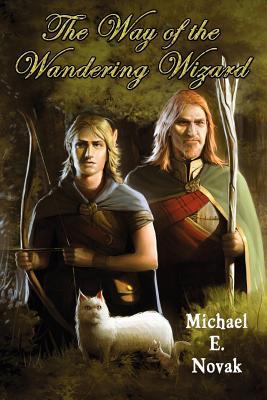
The Hunger Pains: A Parody by The Harvard Lampoon
vs.
The Way of the Wandering Wizard by Michael E. Novak


The Hero's Guide to Saving Your Kingdom by Christopher Healy
vs.
The True Meaning of Smekday by Adam Rex


The One and Only Ivan by Katherine Applegate
vs.
Bomb: The Race to Build - and Steal the World's Most Dangerous Weapon by Steve Sheinkin
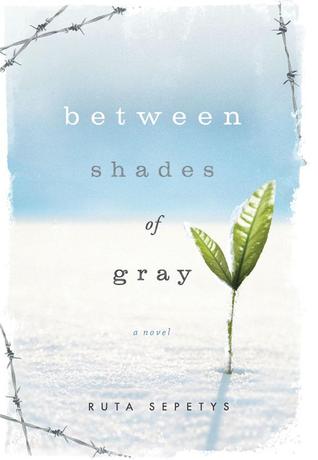

Between Shades of Gray by Ruta Sepetys
vs.
Wonder by RJ Palacio
Vote here and vote wisely


The Hunger Pains: A Parody by The Harvard Lampoon
vs.
The Way of the Wandering Wizard by Michael E. Novak


The Hero's Guide to Saving Your Kingdom by Christopher Healy
vs.
The True Meaning of Smekday by Adam Rex


The One and Only Ivan by Katherine Applegate
vs.
Bomb: The Race to Build - and Steal the World's Most Dangerous Weapon by Steve Sheinkin


Between Shades of Gray by Ruta Sepetys
vs.
Wonder by RJ Palacio
Vote here and vote wisely
Wednesday, March 13, 2013
March Book Madness: The Sweet 16
Here are the breakdown of the brackets:
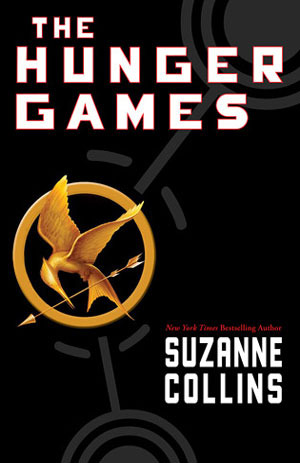

The Hunger Games by Suzanne Collins
vs.
The Hunger Pains: A Parody by The Harvard Lampoon


Middle School: The Worst Years of My Life by James Patterson
vs.
The Way of the Wandering Wizard by Michael E. Novak


Out of my Mind by Sharon Draper
vs.
The Hero's Guide to Saving Your Kingdom by Christopher Healy


The True Meaning of Smekday by Adam Rex
vs.
Deep and Dark and Dangerous by Mary Downing Hahn

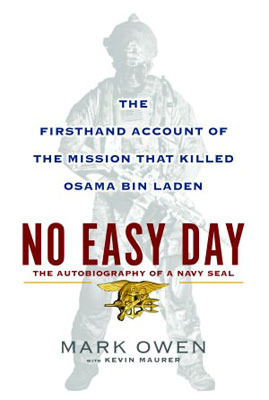
The One and Only Ivan by Katherine Applegate
vs.
No Easy Day:The Firsthand Account of the Mission That Killed Osama Bin Laden by Mark Owen and Kevin Maurer


Turtle in Paradise by Jennifer L. Holm
vs.
Bomb: The Race to Build - and Steal the World's Most Dangerous Weapon by Steve Sheinkin


Between Shades of Gray by Ruta Sepetys
vs.
Catching Fire by Suzanne Collins

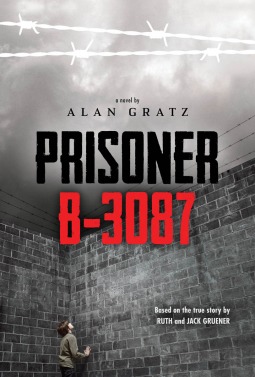
Wonder by RJ Palacio
vs.
Prisoner B-3087 by Alan Gratz
Vote here and vote wisely


The Hunger Games by Suzanne Collins
vs.
The Hunger Pains: A Parody by The Harvard Lampoon


Middle School: The Worst Years of My Life by James Patterson
vs.
The Way of the Wandering Wizard by Michael E. Novak


Out of my Mind by Sharon Draper
vs.
The Hero's Guide to Saving Your Kingdom by Christopher Healy


The True Meaning of Smekday by Adam Rex
vs.
Deep and Dark and Dangerous by Mary Downing Hahn


The One and Only Ivan by Katherine Applegate
vs.
No Easy Day:The Firsthand Account of the Mission That Killed Osama Bin Laden by Mark Owen and Kevin Maurer


Turtle in Paradise by Jennifer L. Holm
vs.
Bomb: The Race to Build - and Steal the World's Most Dangerous Weapon by Steve Sheinkin


Between Shades of Gray by Ruta Sepetys
vs.
Catching Fire by Suzanne Collins


Wonder by RJ Palacio
vs.
Prisoner B-3087 by Alan Gratz
Vote here and vote wisely
Prudence Essay
Our
virtue for our 3rd quarter at St. Paul is prudence. Prudence is called
the auriga virtutum, or the
charioteer of the virtues. As the Catechism of the Catholic Church
describes, prudence “guides the other virtues by setting rule and measure. It is prudence that immediately guides the
judgment of conscience.”
With
the guidance of prudence, we are able to make well-informed and thoughtful
decisions that will benefit not only ourselves but those around us. As it is written in Proverbs 14:17, “The
quick-tempered man makes a fool of himself, but the prudent man is at peace.”
St.
Thomas Aquinas named prudence the first of the Cardinal Virtues because it
allows us to decide correctly between what is right and what is wrong. Prudence is a beautiful virtue because it
allows us to grow and learn with Jesus Christ as our model. As St. Thomas Aquinas explains, prudence is
“right reason in action.”
Assignment:
With
the guidance of a parent or guardian, each student is to write an essay on
prudence. In their essay, each student
must choose a person in their life whom they believe is prudent. Explain why this influential person is
prudent and provide examples of how they live a prudent lifestyle.
This essay should be at least 5 paragraphs and be typed.
Please
be sure to share your thoughts on prudence and your essay on a prudent person
with your parent or guardian.
Due: March 21st
Subscribe to:
Comments (Atom)